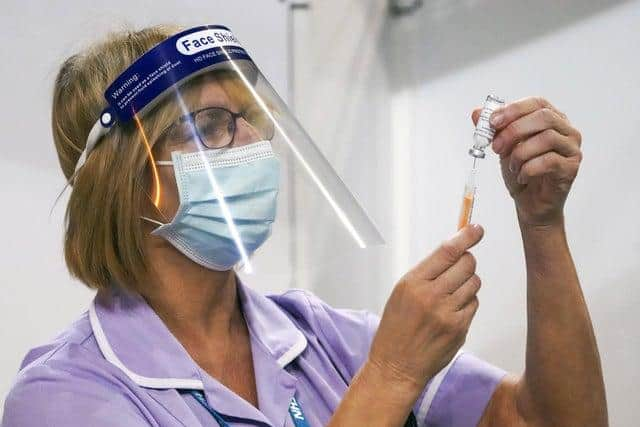Latest Covid-19 figures for Sheffield show cases are dropping across South Yorkshire
and live on Freeview channel 276
Across South Yorkshire, the number of positive cases being recorded week to week have plummeted by at least 25 per cent, and even as much as a third in Doncaster.
It exceeds the number of falling cases across the UK, which on average has dropped 22 per cent in the week ending February 24.


Advertisement
Hide AdAdvertisement
Hide AdHowever, the steep decline has highlighted stark regional differences where cases continue to rise. Northern Ireland and Scotland have case rates five times higher than in Wales.
In Sheffield, the number of positive cases week on week leading up to February 24 fell from 1,931 to 1,402, a fall of 27.4 per cent. This also means the rate of cases per 100,000 fell from 327.7 to 237.9.
It places the city well below the average rate for England, which still stands at 332 per 100,000 people.
Out of Sheffield 71 neighbourhoods tracked by the Government, the rate only rose in 13 of them.
Advertisement
Hide AdAdvertisement
Hide AdThe sharpest rise was in Tinsley and Carbrook, which saw its rate of cases rise 80 per cent from 70 to 126.
Broomhall also saw a sharp rise in the rate of cases, climbing 50 per cent from 335.3 to 503.
Across South Yorkshire, the average number of cases is falling at a faster rate than the UK as a whole.
The number of positive cases recorded in Doncaster fell 32 per cent from 815 down to 554.
Advertisement
Hide AdAdvertisement
Hide AdRotherham dipped by 25.6 per cent and Barnsley fell by 24.9 per cent.
The figures – provided by the JPIMedia and National World data team – includes both positive PCR and lateral flow tests, and also includes people infected with Covid-19 for the first time as well as reinfections.
It comes after Covid-19 restrictions were lifted on February 24. It is now no longer a legal requirement to self-isolate if you have Covid symptoms or test positive for the disease.
Instead, those people are “advised to stay at home and avoid contact with other people”.
The Government has stressed that ‘vaccines will remain the first line of defence against Covid-19’.
For more information, see Sheffield City Council’s advice page on Covid-19 restrictions.
Comment Guidelines
National World encourages reader discussion on our stories. User feedback, insights and back-and-forth exchanges add a rich layer of context to reporting. Please review our Community Guidelines before commenting.

